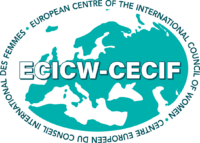Protecting children from online exposure to pornography, exploitation, and other harms
Resolution adopted in Avignon at the GA of the ICW, May 2022
(Original in English)
Considering that children across the globe are increasingly accessing the internet on smart phones, tablets, computers and gaming consoles in their homes, schools, and via open public Wi-Fi and that research indicates the average age of a child exposed to pornography online is 11 years of age,
Concerned parental oversight and existing legislative measures fail to protect children from online predators and from access andexposure to the often violent, degrading, and the exponentially growing online library of pornography commercially monetized by the adult entertainment industry that is known to also include Child Sexual Abuse Material (CSAM),
Conscious that children’s exposure negatively impacts the social, sexual, emotional, physical, and mental well-being of children and youth and is recognized as a public health and safety concern, a position supported by neuroscience research that affirms thatearly exposure to pornography is strongly correlated with verbal and physical sexual aggression in boys and sexual victimization in girls, and that exposure to such content in childhood reinforces the development of attitudes favourable to harassment and violence that manifest themselves in adulthood,
Noting that pornography/adult entertainment companies, including those on dark web platforms and the servers that support them, are international in scope, necessitating a concerted and co-ordinated international response encouraging national governments to prioritise mitigating this threat,
Recalling that online age verification mechanisms provide effective protection which shields children and youth from exposure to pornography and online predators, and the 2021 Convention on the Rights of the Child General Comment
25 (Protection from Economic, Sexual, and other forms of exploitation), specifically states that “Robust age verification systems should be used to prevent children from acquiring access to products and services that are illegal for them to own or use”,
THE INTERNATIONAL COUNCIL OF WOMEN CALLS ON ITS AFFILIATED COUNCILS TO URGE THEIR RESPECTIVE GOVERNMENTS TO:
- Ensure that robust protection measures including age verification mechanisms are enacted to protect children and those under the age of majority from exposure online to abuse and exploitation and from accessing and/or inadvertently being exposed to pornography;
- Determine whether their national pre-existing laws are in compliance with the Convention on the Rights of the Child, or whether any amendment or new legislation is required in order to comply with their treaty obligations;
- Adopt and enforce legislation directed to protecting children and those under the age of majority from online harms by implementing a strategy that requires, as part of a robust digital framework, all internet service providers and social media sites adopt third party protection measures that include age verification mechanisms;
- Direct sustainable funding for specialized online forensic tools and national policing resources and directives to ensure that pornography and social media platforms, tech companies and internet services providers comply with age verification protection measures;
Ensure compliance and prosecute those pornography and social media platforms, tech companies and internetservices providers who fail to comply with sanctions to include blocking access to their websites in their respective jurisdictions.
